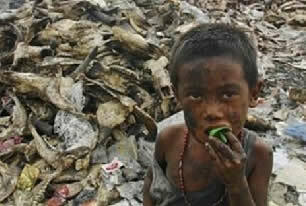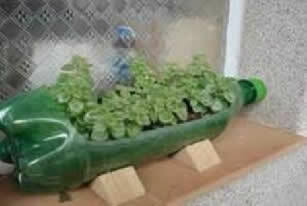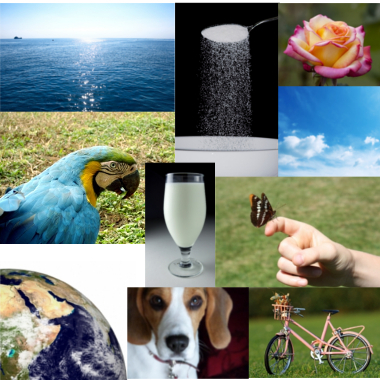Environment, according to the Mini Aurélio dictionary, means the set of natural conditions and influences that surround a living being or a community, and that act on it(s). Thus, the environment involves not only plants, animals and beautiful landscapes; but all living things and the environments in which they live.
Considering what has been said, and knowing the relationship between all living and non-living beings, it is important to respect the environment.
Some tips:
- Avoid excessive consumption, that is: do not use or waste what is not necessary. First, because everything we consume, directly or indirectly, comes from natural resources, and some are not renewed. Second, because consumption produces waste and, as we know, some materials take time to decompose.
Even more serious is the waste of food, thrown away at the same time that countless people starve to death. This type of garbage forms a liquid substance called slurry, which can penetrate underground water, contaminating it. In addition, as it is leftover food, this material attracts animals that can cause disease, such as rats and cockroaches. Considering that many people have direct contact with garbage, the result is not very nice.

Avoiding waste is a way of taking care of the environment.
Turn off the shower while soaping your body, and the sink faucet while brushing your teeth; and turn off the light when leaving a room; they are also excellent attitudes.
- Reuse materials. That's because, as mentioned, everything we consume uses natural resources. So, instead of buying something new, reusing what we have, we are saving the environment.
Did you get sick of that toy that is still in good condition? How about switching with your colleague, on the other, instead of buying something new? As for drawing paper, wouldn't it be nice to use both sides of the sheet, before getting a new one?

Reuse is another way of taking care of the environment.
- Direct garbage correctly. Have you ever seen how ugly the place we are is when it's full of garbage? Well, in addition to disturbing the look, garbage thrown in the wrong place can cause several problems, in addition to those mentioned in the previous item: the clogging of manholes, for example. This fact means that, during the rains, the water does not flow properly. The result? Floods, overflowing rivers (including polluted ones), diseases, etc.
- After considering all this, recycle. Recycling is a really cool gesture that a person can do for the environment. However, to recycle materials, industries also need a lot of raw materials from nature. Therefore, it is important, first, to avoid excessive consumption and waste and reuse what we can to then consider recycling.
For a material to be recycled, it is good that it is separated in a suitable place. At home, for example, you can set aside a corner to separate the paper; and reusing a cardboard box to separate other recyclable materials, such as plastic, glass and aluminum (washed to prevent the proliferation of disease-carrying animals). After that, these materials can be donated to a waste picker, a charity or, if your city has it, to the local recycling service. Delivering to scavengers is a cool alternative because it allows such people to stop working in dumps, having a more dignified life, as they will no longer be exposed to a large number of diseases and possibilities of accidents.
Curiosity:
Did you know that conservation and preservation are different expressions?
- Preserving means leaving a place untouched, without much change.
- Preserving means using what we have, but in a rational way, giving nature time to recover.
Caring for the environment, as discussed in this text, is more related to conservation. This is because, as we said, consumption requires the use of nature and, in this way, there is no way to leave it untouchable.
In this context, an expression emerged: sustainable development, which means the use of resources natural without compromising those who live today, nor the next generations of living beings that will inhabit our planet Earth.
By Mariana Araguaia
Biologist, specialist in Environmental Education
Kids School Team


